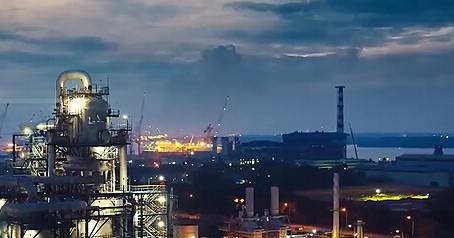டிசம்பர் . 19, 2024 07:49 Back to list
HDPE Pipe Coupling Solutions for Efficient Plumbing and Water Distribution Systems
Understanding HDPE Pipe Couplings An Essential Component for Reliable Pipeline Systems
High-Density Polyethylene (HDPE) pipes are becoming increasingly popular in various industries due to their durability, flexibility, and resistance to corrosion. As these pipes are incorporated into infrastructure systems for water management, sewage, gas transportation, and industrial applications, the role of HDPE pipe couplings becomes crucial. This article delves into the significance of HDPE pipe couplings, their types, and their applications in modern piping systems.
What are HDPE Pipe Couplings?
HDPE pipe couplings are fittings used to connect two or more sections of HDPE piping. They facilitate the efficient and secure joining of pipes, ensuring that there is minimal leakage and maximum strength across the connections. The couplings are specially designed to accommodate the unique properties of HDPE, ensuring compatibility and long-lasting performance in various environmental conditions.
Types of HDPE Pipe Couplings
1. Butt Fusion Couplings This method involves heating the ends of two HDPE pipe sections until they melt and then pressing them together to create a strong bond. Butt fusion couplings are commonly used for larger diameter pipes, providing a seamless connection that withstands internal pressures and external forces.
2. Electrofusion Couplings These couplings use electric current to heat a coil embedded within the coupling, which in turn melts the pipe surfaces and bonds them together. Electrofusion joints are perfect for rugged conditions where traditional methods may be less effective. They offer complete control over the process, making them a preferred choice for many contractors and engineers.
3. Mechanical Couplings These include various types of fittings that can connect HDPE pipes without fusion. They are easy to install and can be used in applications where a temporary or easily adjustable connection is needed. Mechanical couplings are also advantageous for repairs and modifications to existing pipeline systems.
4. Flanged Couplings Flanged couplings allow for easy disassembly, which is beneficial for maintenance and repair purposes. These couplings come with flanges that are bolted together, providing a secure and leak-proof connection.
Applications of HDPE Pipe Couplings
HDPE pipe couplings are utilized in multiple applications across industries
hdpe pipe coupling

- Water Distribution Systems Couplings play a pivotal role in ensuring the integrity of water distribution pipes, efficiently connecting different sections while resisting corrosion and wear.
- Sewage and Waste Management In sewage systems, HDPE couplings help maintain the overall strength of pipelines, ensuring no leakage occurs, which is vital for environmental and health considerations.
- Gas Transport HDPE pipes, coupled with appropriate fittings, are critical in the safe transport of natural gas and other volatile substances. They can withstand high pressures, providing a reliable solution for energy delivery.
- Industrial Applications In various manufacturing and processing environments, HDPE pipes and couplings are employed to manage fluids, chemicals, and other materials safely.
Advantages of Using HDPE Pipe Couplings
Using HDPE pipe couplings offers numerous benefits
- Durability HDPE couplings are designed to withstand harsh conditions, including extreme temperatures, chemicals, and UV radiation, resulting in a longer operational life.
- Flexibility The flexible nature of HDPE allows for ease of installation and the ability to adapt to changing environmental conditions and ground movement.
- Cost-Effectiveness Although the initial investment might be higher than other materials, the long-term savings on maintenance and replacement costs make HDPE pipe couplings a wise economic choice.
In conclusion, HDPE pipe couplings are indispensable components of modern piping systems. Their various types and applications ensure that industries can operate efficiently while maintaining safety and reliability standards. As infrastructure demands grow, the importance of high-quality HDPE couplings will undoubtedly continue to rise.
-
Durable PP Rigid Sheet: Lightweight, Chemical Resistant Solutions
NewsAug.21,2025
-
PVC Grey Sheet for Extraction: Chemical Resistant & Durable
NewsAug.19,2025
-
Durable PVC Pipe Fittings for Plumbing & Irrigation Needs
NewsAug.18,2025
-
HDPE Steel Belt Reinforced Spiral Corrugated Pipe | High Strength
NewsAug.17,2025
-
HDPE Pipe Fittings: Durable, Leak-Proof Solutions
NewsAug.16,2025
-
Premium CPVC Sheet: High-Temp & Chemical Resistant Solutions
NewsAug.15,2025

